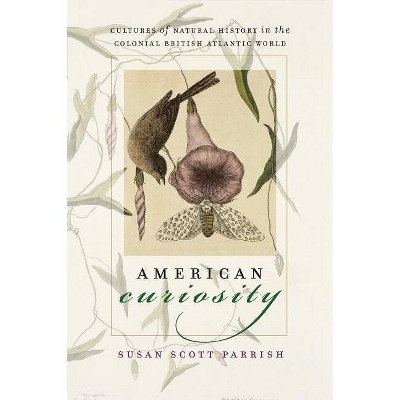Unification of a Slave State - (Published by the Omohundro Institute of Early American Histo) by Rachel N Klein (Paperback)

About this item
Highlights
- This book describes the turbulent transformation of South Carolina from a colony rent by sectional conflict into a state dominated by the South's most unified and politically powerful planter leadership.
- Author(s): Rachel N Klein
- 344 Pages
- History, United States
- Series Name: Published by the Omohundro Institute of Early American Histo
Description
About the Book
Unification of a Slave State: The Rise of the Planter Class in the South Carolina Backcountry, 1760-1808Book Synopsis
This book describes the turbulent transformation of South Carolina from a colony rent by sectional conflict into a state dominated by the South's most unified and politically powerful planter leadership. Rachel Klein unravels the sources of conflict and growing unity, showing how a deep commitment to slavery enabled leaders from both low- and backcountry to define the terms of political and ideological compromise.The spread of cotton into the backcountry, often invoked as the reason for South Carolina's political unification, actually concluded a complex struggle for power and legitimacy. Beginning with the Regulator Uprising of the 1760s, Klein demonstrates how backcountry leaders both gained authority among yeoman constituents and assumed a powerful role within state government. By defining slavery as the natural extension of familial inequality, backcountry ministers strengthened the planter class. At the same time, evangelical religion, like the backcountry's dominant political language, expressed yet contained the persisting tensions between planters and yeomen.
Klein weaves social, political, and religious history into a formidable account of planter class formation and southern frontier development.
Review Quotes
In her important "Unification of a Slave State", . . Klein expertly wields a historian's prime weapon: exploring "when" things happen.
William Freehling, The Johns Hopkins University
ÝKlein¨ presents compelling accounts of a series of struggles that shaped the backcountry's social and political order.
"Journal of American History"
In her important "Unification of a Slave State," . . Klein expertly wields a historian's prime weapon: exploring "when" things happen.
William Freehling, The Johns Hopkins University
Klein's stimulating and sophisticated book is . . . a must-read for anyone interested in the history of the region.
Robert Weir, University of South Carolina
"In her important "Unification of a Slave State," . . Klein expertly wields a historian's prime weapon: exploring "when" things happen.
William Freehling, The Johns Hopkins University"
"Klein's stimulating and sophisticated book is . . . a must-read for anyone interested in the history of the region.
Robert Weir, University of South Carolina"
[Klein] presents compelling accounts of a series of struggles that shaped the backcountry's social and political order.
"Journal of American History"
A telling and readable account of the transformation of South Carolina that will intrigue scholars and lay readers alike.
"South Carolina Historical Magazine"
Shipping details
Return details
Trending History











